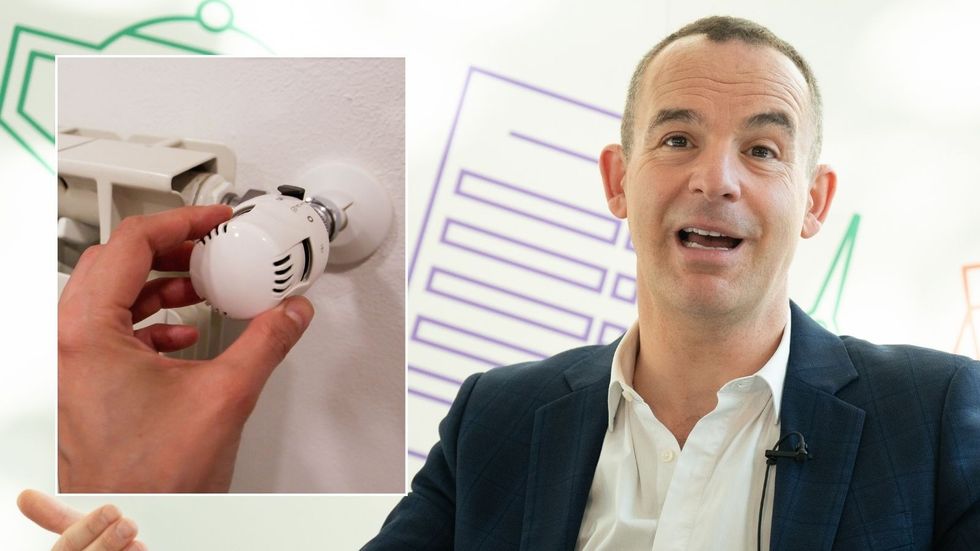Farage: Miliband's energy policies will hit hit the UK worse than immigration
GB NEWS
Households are looking for energy bill advice following news that prices will go up once again in January
Don't Miss
Most Read
Trending on GB News
Martin Lewis has urged households to take immediate action following Ofgem's announcement of another energy price cap rise.
The money saving expert shared a "simple" tip after the regulator confirmed prices will increase by 1.2 per cent from January to March 2025.
The change means the average dual fuel household paying by direct debit will see their energy bills rise from £1,717 to £1,738 annually. Lewis advised consumers that now is the time to consider locking into a fixed tariff deal, with some offers currently available at five per cent below the price cap.
The price cap adjustment will see bills rise by £21 per year, or approximately £1.75 per month, for households on British Gas, EDF, EON, Ovo, and Octopus tariffs. This sets maximum rates per unit and standing charges that energy companies can bill customers for their usage.
Cornwall Insight forecasts suggest energy bills may drop slightly by 1.4 per cent in April to £1,713 per year for typical dual fuel users, before another small decrease in July.
However, experts warn these predictions could change before the April price cap is officially announced. Martin Lewis explained: "Over the next year it's predicted you will pay a couple of percent more than now on average.
Do you have a money story you’d like to share? Get in touch by emailing money@gbnews.uk.

Martin Lewis is sharing "simple" energy bill saving tips
GETTY
"The cheapest fixed tariffs available right now are around 5 per cent LESS than the current price cap. Therefore the simple thing to do is lock into a fix now to save money and guarantee no future hikes."
The host of The Martin Lewis Money Show Live also suggested considering tracker tariffs as an alternative option. These tracker tariffs follow price indices such as wholesale energy costs, with different providers offering various approaches.
E.on's tracker offers discounted unit rates, while EDF focuses on reduced standing charges. According to Uswitch, the current cheapest fix available is Outfox the Market's Fix'd Dual Nov24 v2.0, priced at £1,606 annually for average household usage.
EDF Energy Simply Fixed Direct 1Yr Jan26 and British Gas Fixed Tariff 18M are both available at £1,608 per year.
Richard Neudegg from Uswitch said: "Right now, the cheapest 12-month fix is meaningfully lower than the January price cap and would save a household with typical usage up to £132 per year against these upcoming rates."
Money Saving Expert's service identifies Outfox the Market as offering the best value, with rates 6.5 per cent below the current price cap. E.on's Next tariff follows at 5.6 per cent less, while So Energy offers a fix at 4.1 per cent below the cap.
Dr Craig Lowrey, the principal consultant at Cornwall Insight, warned: "This latest increase in the price cap underlines the continuing volatility of the energy market, which is still experiencing the lingering effects of the energy crisis."
He emphasised that while April may bring some relief, prices remain "well above historical norms."
LATEST DEVELOPMENTS:

Lewis's latest advice comes shortly after Ofgem's energy price cap announcement for January to March 2025
GETTYAlastair Douglas, TotallyMoney CEO, highlighted concerns about market competition, noting: "Today, there's only 21 active suppliers, compared to 52 prior to the energy crisis, and six of these providers dominate 92% of market share."
Douglas added that customers face exit fees of up to £300 when trying to switch suppliers before their contract ends. For households struggling with energy costs, suppliers offer various forms of support through dedicated help hubs.
TotallyMoney's CEO advises customers to contact their energy providers directly to explore available assistance options. Support could include grants, payment holidays, or energy efficiency upgrades.
Martin Lewis has also indicated he will be meeting with Energy Secretary Ed Miliband to discuss standing charges, which he describes as an "energy poll tax."








